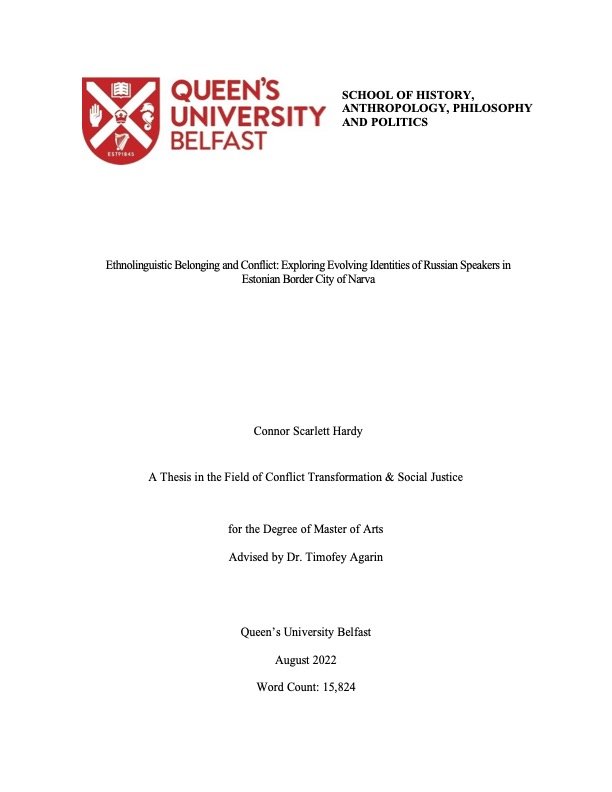Ethnolinguistic Belonging and Conflict: Exploring Evolving Identities of Russian Speakers in Estonian Border City of Narva
Master’s Dissertation
Queen’s University Belfast School of History, Anthropology, Philosophy & Politics
MA in Conflict Transformation and Social Justice
Abstract
This research aims to explore how ethnolinguistic belonging and identity of minority groups are impacted by external geopolitical conflict, focusing in particular on minority enclaves in border areas and Narva, Estonia and the impact of the Russia-Ukraine War. Using Rogers Brubaker’s model of the dynamic triadic relationship between a national minority (the Russian-speaking national minority in Narva), a nationalizing state (Estonia), and an external “kin” state (Russia), as well as John Paul Lederach’s theories of conflict transformation, this research will examine the impact of the kin state’s actions on minority identity, self-perception, and self-described belonging concerning the nationalizing state. There is significant prior literature on ethnolinguistic minorities and identity among Russian speakers in Estonia, elsewhere in the Baltics, and other post- Soviet nations, and more broadly in other places where there is tension between ethnolinguistic minorities and the states in which they reside. However, this research uses a conflict transformation lens to reveal how members of a Russian-speaking national minority respond to external conflict and actions of the kin and nationalising states and how their sense of ethnolinguistic belonging and attitudes toward kin and nationalising states have shifted as a result of the Russia-Ukraine War. Interviews illustrate how during the war, the self-described experience of ethnocultural belonging among Russian- speaking Estonians in Narva hinges on central questions of what it means to them to “be Estonian” and how the border has shifted in its many dimensions, becoming less fluid as a result of the war’s polarizing effect.
